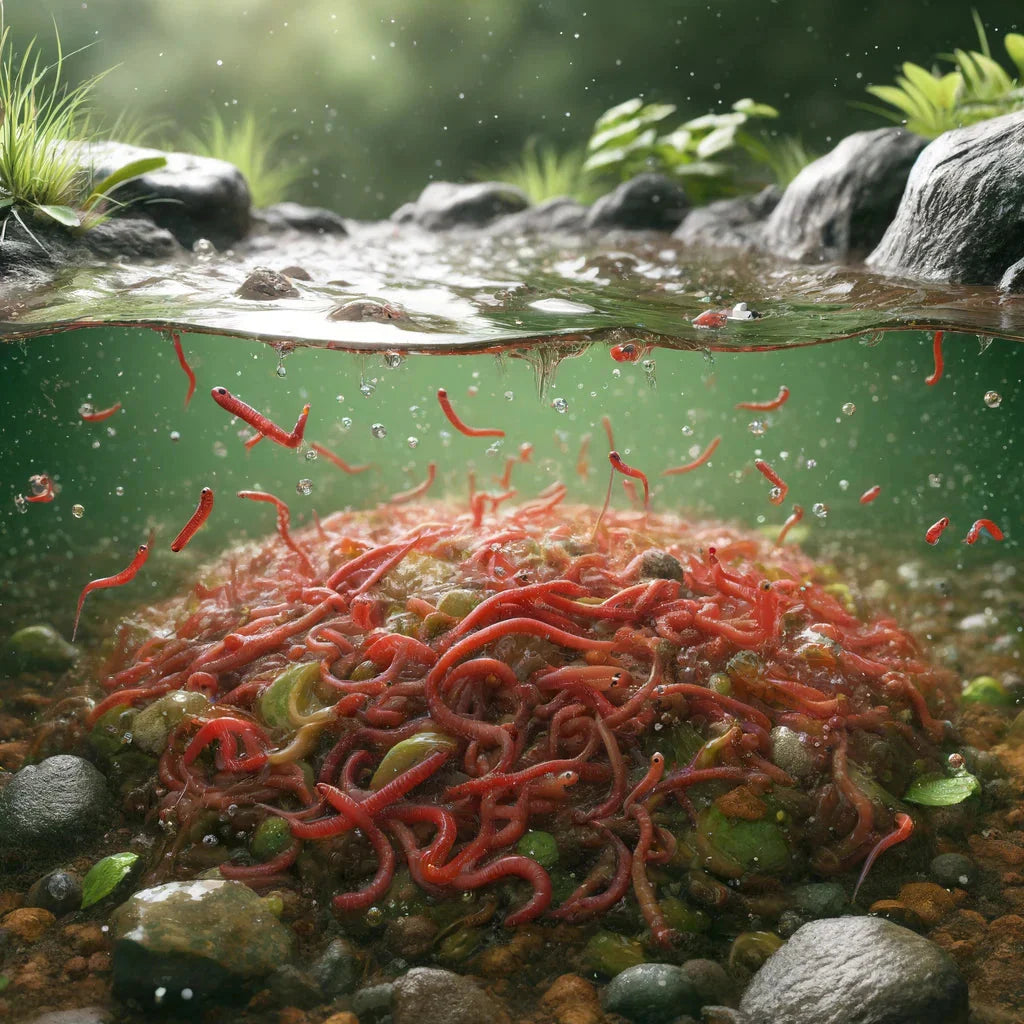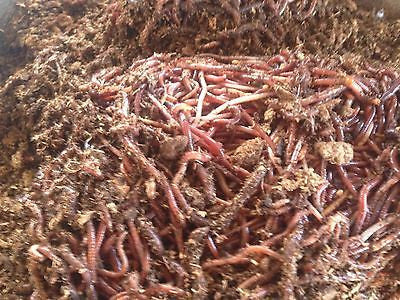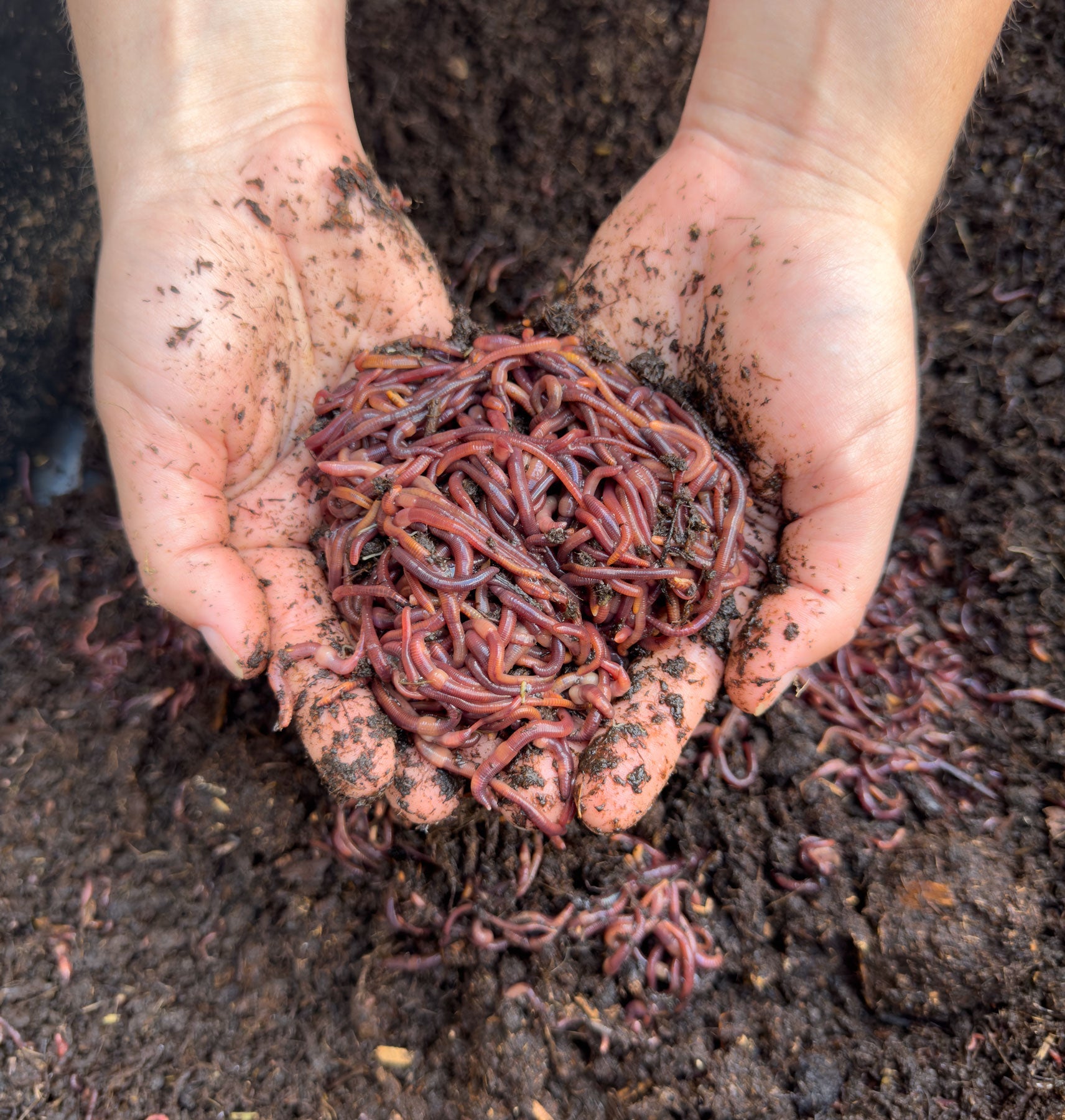Affordable Red Wiggler Composting Worms for Sale – Free Shipping Available
Wiki Article
Leading Advantages of Red Wigglers for Your Composting Needs

Boosted Garden Compost Top Quality
One can appreciate the substantial influence that red wigglers carry compost top quality. These earthworms, particularly Eisenia fetida, are renowned for their ability to transform organic waste into nutrient-rich vermicompost. The procedure begins with the worms consuming rotting materials, such as food scraps and backyard waste, which they damage down while digesting. The resulting castings, or worm manure, are a concentrated resource of crucial nutrients, including phosphorus, potassium, and nitrogen.Along with enhancing nutrient content, red wigglers boost dirt structure. Their burrowing activities produce channels that promote oygenation and drainage, promoting a much healthier root atmosphere. In addition, the microbial task promoted by their visibility leads to a more varied and active soil biota, which further adds to overall plant health and wellness.
Additionally, vermicompost maintains moisture a lot more effectively than standard compost, minimizing the need for regular watering. This building is specifically beneficial in drought-prone areas. Overall, the addition of red wigglers in composting methods substantially raises the high quality of compost, making it a premium change for yards and farming applications.
Fast Decomposition Refine
The effectiveness of the decay process is significantly enhanced by the presence of red wigglers, which proactively accelerate the break down of organic products (Red Wigglers Free Shipping). These earthworms, particularly Eisenia fetida, are renowned for their voracious hunger, consuming a significant volume of food waste daily. As they feed upon raw material, they damage it down right into smaller sized particles, raising the surface for microbial task and speeding up disintegrationAdditionally, red wigglers thrive in a wet, nutrient-rich environment, which better promotes the growth of beneficial bacteria. This cooperative partnership between worms and microorganisms produces optimal conditions for rapid decomposition. The worms' burrowing task freshens the compost, guaranteeing sufficient oxygen levels, which is critical for cardio disintegration processes.
In addition, red wigglers can process a diverse variety of organic materials, consisting of cooking area scraps, paper, and backyard waste, making them functional composters. Their capability to transform waste right into garden compost swiftly not only minimizes the quantity of waste sent out to land fills yet also generates a useful source for farmers and gardeners. In significance, the addition of red wigglers in composting systems substantially reduces the moment needed for natural waste to decay, making them indispensable allies in sustainable waste administration.
Nutrient-Rich Spreadings
As red wigglers efficiently damage down natural materials, they generate nutrient-rich castings, which are an extremely advantageous byproduct of the composting procedure. These castings, typically described as vermicompost, have a wealth of crucial nutrients consisting of phosphorus, potassium, and nitrogen, making them an exceptional all-natural plant food for gardens and plants.The microbial activity present in red wiggler spreadings improves dirt structure, advertising aeration and water retention. This improved dirt top quality leads to healthier plant development and increased crop returns. Furthermore, the slow-release nature of the nutrients in worm castings makes sure that plants get a steady supply with time, minimizing the demand for chemical fertilizers.
Furthermore, the presence of valuable germs in these castings plays a crucial role in subduing soil-borne illness, cultivating a much more durable garden community. The application of worm castings not only enhances the soil but also adds to sustainable gardening practices by reusing natural waste. Overall, making use of red wigglers for composting not just creates nutrient-rich spreadings however likewise supports eco-friendly balance while enhancing the performance of your horticulture ventures.

Odor Reduction Perks
Using red wigglers in composting systems substantially adds to odor decrease, producing an extra pleasurable setting for both neighbors and garden enthusiasts. These worms are highly reliable at damaging down raw material, such as food scraps and lawn waste, which can frequently produce unpleasant smells if entrusted to break down anaerobically.Red wigglers grow in aerobic problems, implying they require oxygen to make it through. By promoting cardio decomposition, they aid to lessen the manufacturing of fetid gases like ammonia and hydrogen sulfide that prevail in poorly taken care of compost pile. Their continuous motion with the compost aids make certain that oxygen is equally distributed, even more boosting the cardio process.
Furthermore, red wigglers take in damaging microbes and organic materials that add to smells, transforming them right into nutrient-rich castings. This not only decreases unpleasant scents however additionally adds to a much healthier compost atmosphere.
Eco-Friendly Waste Monitoring

The impact of red wigglers on waste reduction is considerable. By diverting organic waste from land fills, where it would generate methane-- a powerful greenhouse gas-- these worms add to a reduction in total carbon discharges. In addition, their ability to boost soil health and wellness advertises lasting farming techniques, promoting biodiversity and reducing the demand for chemical plant foods.
Integrating red wigglers right into waste management techniques not only addresses garbage disposal concerns yet additionally motivates local communities to take on more sustainable techniques. By fostering recognition of vermicomposting and its advantages, people can actively take part in environment-friendly efforts, inevitably resulting in a healthier earth. Hence, red wigglers serve as an important part in the search of lasting waste administration solutions.
Verdict
The assimilation of red wigglers into composting methods significantly enhances the total high quality and effectiveness of natural waste handling. Overall, red wigglers serve as an essential element in the mission for reliable and eco liable composting solutions.The incorporation of red wigglers into composting methods provides numerous considerable benefits that can boost both the efficiency and performance of natural waste monitoring. In significance, the addition of red look at here now wigglers in composting systems substantially shortens the time needed for organic waste to disintegrate, making them essential allies in sustainable waste management.
Red wigglers play an essential function in environment-friendly waste management by effectively recycling natural materials that would or else add to landfill waste.Including red wigglers into waste management approaches not only addresses waste disposal issues but also encourages local areas to adopt even more lasting methods.The combination of red wigglers into composting methods considerably enhances the overall top quality and efficiency of organic waste handling.
Report this wiki page